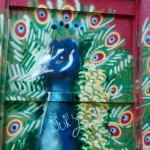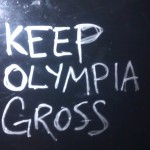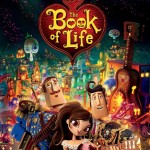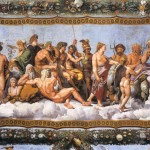Today begins a new quarter! Hurray! Or hwre, as they say in Welsh. When I started this project I fully expected to be in Wales, exploring the green hills and red kites and Welsh mythology. Wales is a beautiful, powerful place; I miss it. Instead, I’m back in the US, in Washington state.
Place may seem like a strange choice for a religion blog. There’s no religion called Place. What does that even mean?
I put it last in my year-long exploration of the traditions that have informed my own personal beliefs and practices, because Place was the first ‘religion’ that I knew. Place, Land, Home – it can be called any of these things. In my testimony I talked about how I was raised secular, but I left out the specificity of being born and raised in Alaska. I don’t even know how I begin talking about the imprint Alaska has made on me. How to explain the sense of place and land to some one who didn’t grow up with that, or find it later in life?
Let me try.
The household I grew up in didn’t talk about things (still doesn’t). Almost everything was assumed, picked up through observing, or just discovered on one’s own. What I learned from my father, who was also born and raised in Alaska, was that the nearest thing to a god in his life was Alaska: its waters, its mountains, its communities, its resources. We were pretty subsistence-based. We went fishing all summer, catching so much salmon that I actually used to complain about having salmon AGAIN for dinner. We went berry picking. My father went hunting. Our freezer was stocked and our family fed and housed by the work of his hands. He built many of the houses we lived in. He told a few stories about spending summers camped out on Shelter Island fishing with his dad and brother. My dad knows all the waterways and islands and history of SE Alaska, like other people know freeways and commute times.
Place was also important to my mother, who raised me with Australian children’s books and music. I knew where her homeland was. I grew up with an understanding of just how big this world is, how diverse it geography and its creatures.
But there was something of the sacred in the way my father related – still relates – to the land. It’s not a tree-hugging reverence, but rather a respect for the forces at play in the land and weather and currents. It was an understanding of conservation and preservation, but not environmentalism. We take care of the land not because it is sacred and should be outside of our touch, because that land takes care of us, by housing us and feeding us.
I think there are many people in other lands that can relate to this. I’ve mostly found that people with a rural upbringing understand this, but I’ve also found some people with such a deep love of their city that they understand the complicated emotional connection to place as well. For a long time I felt like Juneau was my greatest love, and I kept cheating on hir by moving away. I always expected to move back and raise my children there. I only gave that up six months ago. Juneau is still The Home Land for me.
If this reverence and focal point in life isn’t similar to religion, then my degrees are worthless.
Or maybe it’s just that I’m bent to perceive the religious and/or spiritual in the world around me. Different lands feel different to me. The older and more traveled I become the more I find I am better at listening. Different places ‘speak’ differently, have different things to ‘say,’ and connect with me more personally. Some places want to dump their stories in your lap, others hold their secrets tightly, and sadly, some places are dead – either because that’s just how they are, or because it seems like the humans have stopped listening.
This quarter I’m diving into where I am: Olympia, Washington. I am going to take this spring quarter to explore the Land here: plants, animals, birds, geography. But a place is more than its land, it is also its people and its history. I’ll read up on the history (as told by white folk) and explore the indigenous peoples of the area, their customs, histories, traditions. I have heard that many of the reservations in the area have excellent cultural centers.
As I am as white as they come, racially and culturally, expect some awkward discussions of race. According to the US Census, Juneau’s population is 11.8% Native American or Alaska Native. (In comparison, Olympia is only 1.1% American Indian.) I grew up with Native friends, we learned about the myths and traditions of the indigenous people in school, and I knew people my grandparents’ ages who spoke Tlingit and remembered learning English for the first time. Alaska is a relatively recently settled land and many of the atrocities faced by other Native groups were avoided – however, that is not to say that horrific things didn’t occur and that Alaska has avoided rampant racism and white privilege. Oh no.
Washington also has the Tsubaki Grand Shrine of North America, the official shrine of Shinto outside of Japan. I have long had a fascination with Shinto, so I’ll be exploring a little bit of that too.
What’s exciting about this quarter is that much of what I learn or practice is very hands on – it’s doing, not just believing. And it’s stuff my kids can connect with. My family can attend the Shinto shrine and the cultural centers with me; we can go hiking and exploring together. It’s also spring. The forsythia is blooming yellow outside my window, the sun is getting a little bit warmer, the days are lengthening – let the great exploration begin!











